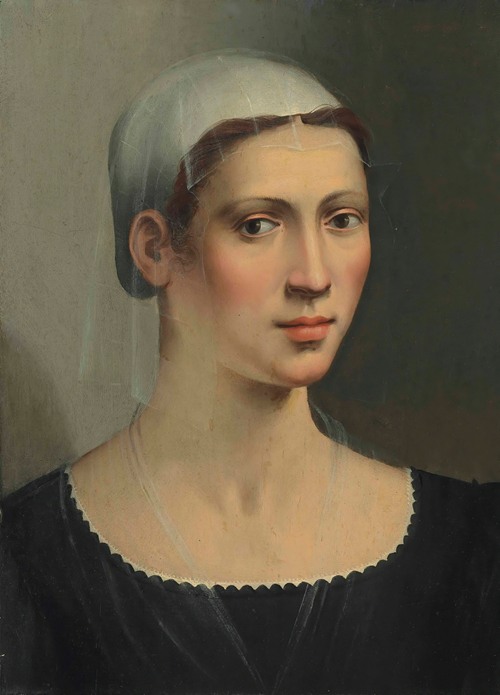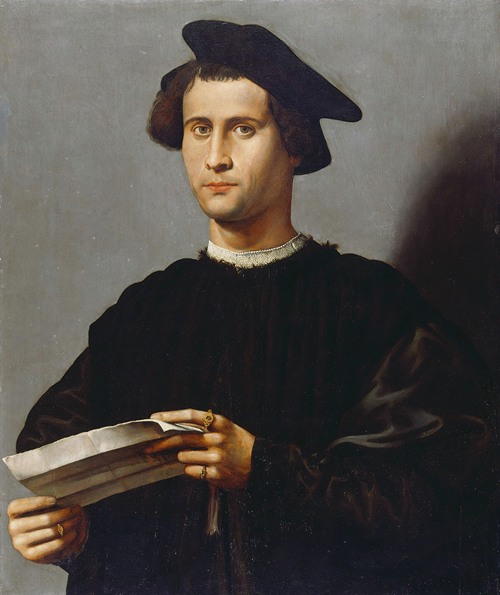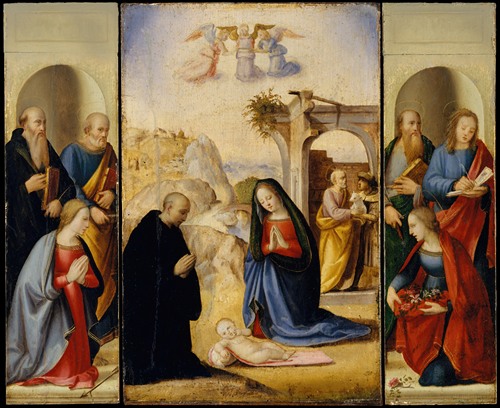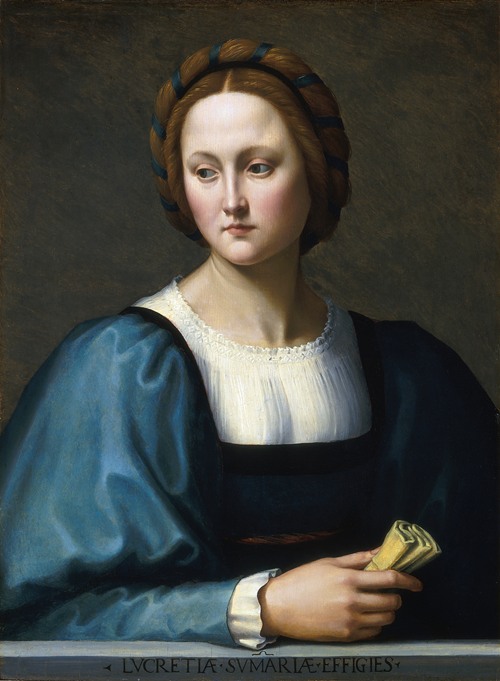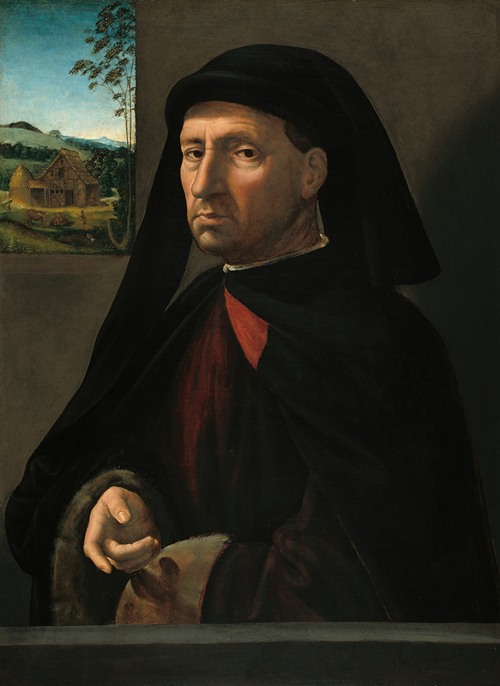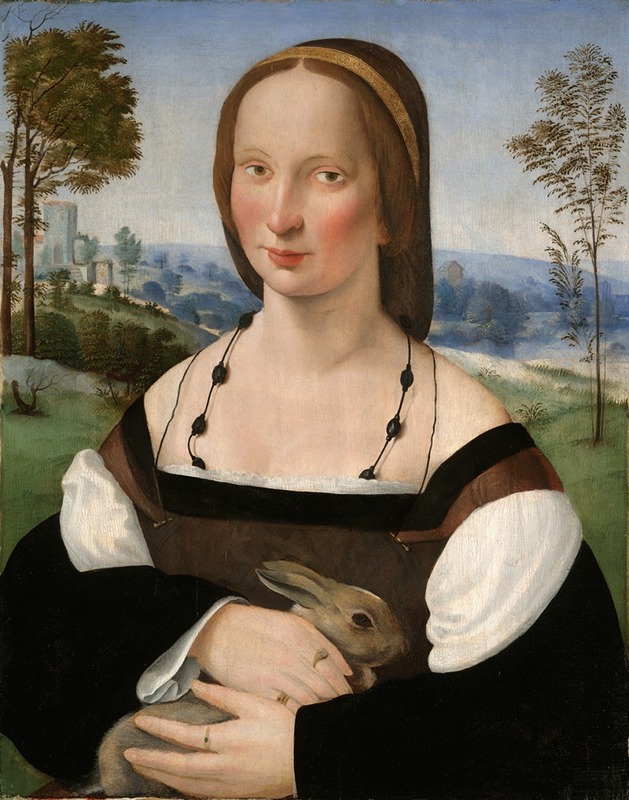
Ridolfo di Domenico Bigordi, better known as Ridolfo Ghirlandaio was an Italian Renaissance painter active mainly in Florence. He was the son of Domenico Ghirlandaio.
He was born in Florence. Since he was eleven years old when his father died, Ridolfo was brought up by his uncle Davide Ghirlandaio, also a painter. Vasari states that he received further training under Fra Bartolomeo.
His works painted between 1504 and 1508 show a marked influence from Fra Bartolomeo and Raphael, with whom he was friends. Raphael asked Ridolfo to join him in Rome in 1508, but the Florentine painter stayed. In Florence, he became one of the most prominent painters of altarpieces, frescoes, and portraits, many of which survive. He was also the head of a thriving workshop whose pupils included Michele Tosini (also known as Michele di Ridolfo), Domenico Puligo, Bartolomeo Ghetti, Antonio del Ceraiolo, Toto del Nunziata, Mariano Graziadei da Pescia, Carlo Portelli and others.
Ridolfo was prominent in the execution of works for various public occasions, such as the wedding of Giuliano de' Medici, and the entry of Leo X into Florence in 1515. By 1527 he had already accumulated a handsome property, more than sufficient in maintaining the affluence of his large family of fifteen children. His sons traded in France and in Ferrara, and he himself took a part in commercial affairs. The family villa at Colle Ramole, near Florence, still has a chapel with frescoes by Ridolfo depicting the Virgin and Child with saints adored by members of the Ghirlandaio family.
In addition to painting, Ridolfo also experimented with mosaics, but it seems that only one such work, the Annunciation over the door of the Santissima Annunziata, survives today.
In his old age Ridolfo was greatly disabled by gout.
